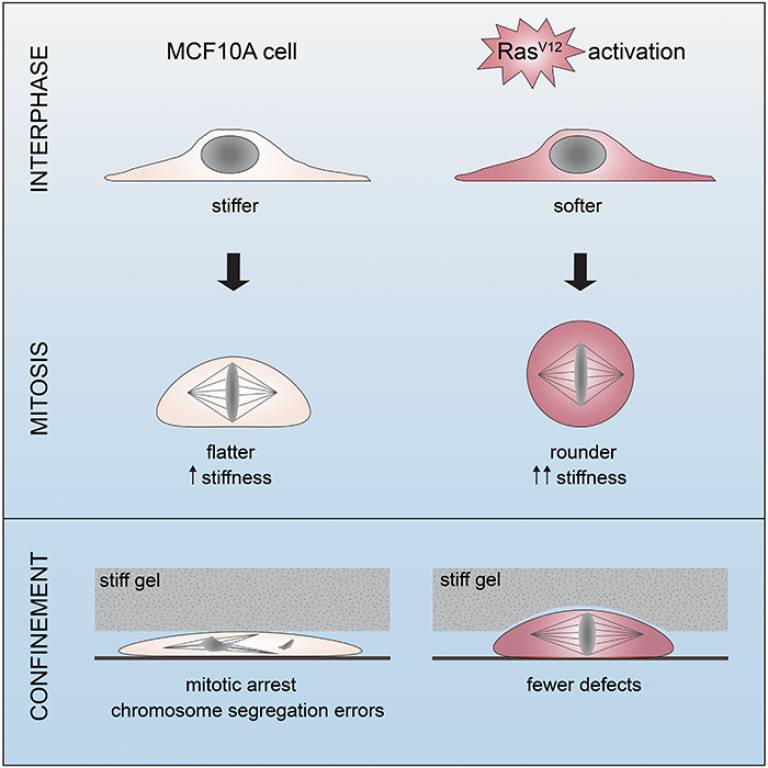New publication in Developmental Cell for Baum Lab
6 February 2020
Oncogenic Signaling Alters Cell Shape and Mechanics to Facilitate Cell Division under Confinement.

Normal cells in the human body only divide when they need to, but cancer cells keep continuously growing and dividing, even in a tumour packed full of other cells. The Baum lab has found that activating a cancer-causing gene in normal cells changes the way that they divide, making them stiffer and more able to push against their surroundings. These cells were able to create space and divide successfully underneath a stiff gel, while normal cells were not. This helps to explain why cancer cells are so efficient at dividing in crowded and stiff tumours. Read the article in Developmental Cell.
Abstract
To divide in a tissue, both normal and cancer cells become spherical and mechanically stiffen as they enter mitosis. We investigated the effect of oncogene activation on this process in normal epithelial cells. We found that short-term induction of oncogenic RasV12 activates downstream mitogen-activated protein kinase (MEK-ERK) signaling to alter cell mechanics and enhance mitotic rounding, so that RasV12-expressing cells are softer in interphase but stiffen more upon entry into mitosis. These RasV12-dependent changes allow cells to round up and divide faithfully when confined underneath a stiff hydrogel, conditions in which normal cells and cells with reduced levels of Ras-ERK signaling suffer multiple spindle assembly and chromosome segregation errors. Thus, by promoting cell rounding and stiffening in mitosis, oncogenic RasV12 enables cells to proliferate under conditions of mechanical confinement like those experienced by cells in crowded tumors.
Links
- Research paper in Developmental Cell
- Professor Buzz Baum's academic profile
- Helen Matthews talks about this publication
- UCL MRC Laboratory for Molecular Cell Biology
- UCL Institute for the Physics of Living Systems
 Close
Close

